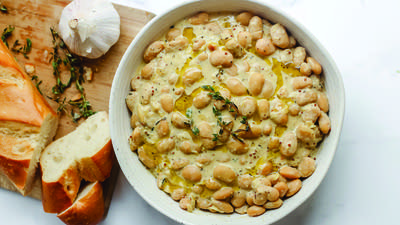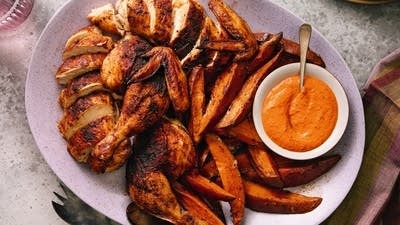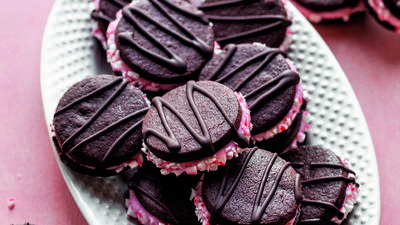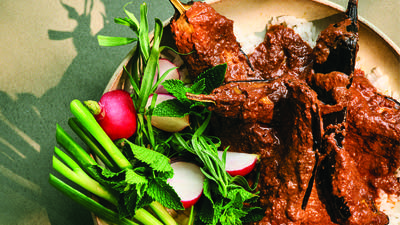by Terry Theise
Chapter Three -- Remystifying Wine
First of all, everything is unified, everything is linked together, everything is explained by something else and in turn explains another thing. There is nothing separate, that is, nothing that can be named or described separately. In order to describe the first impressions, the first sensations, it is necessary to describe all at once. The new world with which one comes into contact has no sides, so that it is impossible to describe first one side and then the other. All of it is visible at every point.
--P. D. Ouspensky
Either nature has a kind of consciousness, and therefore a purpose, or it does not. In our present state of development, there's no way to know. It's my experience that nature -- whether metallic (like my car) or organic (like a plant) or neither (like the wind) -- behaves differently if one relates to it as though it is conscious; many have experienced consciousness in rocks, flora, fauna and objects, but our subjective experiences are difficult to demonstrate and impossible to prove. If nature has no consciousness or purpose, I don't see how humanity can, so I choose to believe we all do. That's my sense of things. Again, impossible to prove, especially when the evidence appears to point the other way.
--Michael Ventura
James Hillman and Michael Ventura published a provocative book called We've Had 100 Years of Psychotherapy and the World's Getting Worse. Well, we've had what seems like a hundred books purporting to "demystify" wine, and wine is more mysterious than ever. Not that the technocrat-enologist complex hasn't been furiously laboring to remove every pesky variable from wine -- damn that nature! -- and Lord knows we're ever more inundated with all manner of mass-produced industrial swill, but true wine is supposed to be complex, and if you think you know it all, well, pal, you don't know nuthin'.
Ah, but the poor hapless consumer, faced with the groaning shelves of wine bottles with gobbledygook on the labels, or the Talmudic opacity of some eight-pound document called the restaurant wine list -- what can we do to help this innocent waif, terrified he'll pick the "wrong" wine? The first thing is to remind him of the nature of the risk. Let's remember, he probably has little to no idea how an automobile actually functions, and if you stuck his head under the hood, he'd think, Hmm, why yes, that's an engine, all right, while remaining clueless about how it makes his car move. He's getting ready to spend serious money on a machine whose operation he doesn't understand, yet we're writing books fussing over how difficult wine is? What are you out if you make a "mistake" and buy the "wrong" wine, twenty bucks in a store? This is not a major disappointment.
Underlying the wine-simplification industry is an inferiority complex. Actually, two inferiority complexes. The first belongs to the reader, who thinks he should know more about wine since apparently he can't escape it, and he hates to feel incompetent. The second belongs to wine writers, who feel themselves part of a collective failure to get Americans to drink more wine. Anything we can do, they reason, to make wine safe for the novice will cause him to snuggle up to wine, and this is good because we who sell wine for a living want more wine drinkers.
But what if we were talking about literature? Not enough people read, that's for sure. But they like looking at images, this we know, so let's simplify this whole literature business by making graphic books out of all those annoying wordy things. Once that's done, let's see if we can eliminate even more words, and tell the whole story with drawings. Oh, hell, let's forget about even having an object you have to hold in your hands; let's make a video of it and shove it onto a screen. I mean, it's the same story, right? Anna still throws herself in front of the train. Holden's still fussing about the stupid ducks. What's the difference?
What often underlies the desire to simplify wine, to make it more "accessible" to everyman, is perilously close to pandering: "If I kill its essence and make it incredibly simple, then will you start drinking it?" Why should we enable everyone's childish desire for things to be predictable? You want predictable, stay clear of wine. Oh, there's plenty of predictable wine made, and if you find one you like, then by all means keep drinking and enjoying it. But if you find yourself curious about wine, you have to accept that uncertainty is inextricable from the experience. Vintages vary, at least in many of the Old World's uncertain climates, and the crisp wine you liked this year could be a voluptuous wine next year. Different growers with adjacent parcels in the same vineyard will make different-tasting wine. It isn't total chaos -- there are threads of consistency running through artisanal wines -- but to appreciate these wines you need a tolerance for surprise.
Put it this way: Would you rather watch a ballgame as it's played, not knowing the outcome? Or would you rather cue up the DVD player and watch a tape of a game already played, maybe a great game, but one with no element of surprise?
There's very little that's inherently mystifying about wine; there's just a huge number of them, from different grapes and different places, and most of them change their taste a little each year. It's a lot of data, but it isn't integral calculus. There is, though, something that summons the mystical in fine wines, and this experience is available to anyone who's willing to prepare for it. It begins with being available -- in other words, allowing both your attention and your emotions to respond to sensation, and to feelings of joy in the face of beauty. This is not a big deal. Say you go for a walk but you're preoccupied (that damned Blauman contract still isn't signed, and little Johnny needs braces). You see nothing of your surroundings. But then your cell phone rings, and it's Jenkins with good news: "Blauman signed!" And now your mind is liberated, and you don't just notice things, you notice everything. You pick up a leaf and turn it over, and the pattern on the underside is astonishing, my God, look at this, was this always here, do other people know about how amazing this is?
There is nothing esoteric or inaccessible about this state of mind. If you are aware of the world, things will come to your attention. One of them is beauty, and one of the beautiful things is wine. But wine's abilities do not stop at mere sensual beauty. Wine is able to channel multiple currents of beauty, from the pretty to the charming, from the fleeting to the logical, from the passionate to the pensive. And great wine will take you to a question and, wonderfully, deposit you there, without an answer or a map -- just looking at the question.
Ambiguous? If you're sitting on a hilltop enjoying a view, you may be able to say, "This is beautiful because I can see a great distance, and the hills fold into one another in an especially comely way, and the river is perfectly situated to give depth to the scene," and that is certainly part of the truth. But beauty has a face that's turned away from the light. Think of music. Can you say why a certain piece of music makes you feel so intensely? Probably not. But it has happened to most of us, and we don't think ourselves weird or "new agey" when it does, because this experience, though mystical, is commonplace. It happens with wine too, but it seems outré because wine drinking itself seems the purview of the arugula munchers.
Wine may have a particular hold on this mystical faculty based on the proximity of the parts of the brain that process smells and memories. I've never had my own Proustian moment, but for me wine does something even more astounding than that. I may not suddenly recover my own memories, but a few great wines have seemed to dilate the world so that I seem to experience a collective memory. I might smell an old Loire valley Chenin Blanc, and it makes me think of an armoire. That's not too fanciful. But it makes me think of an armoire in a room in a French country house, and I can see the other furniture too, and the view of gardens and fields out the window, and I can almost hear the voices of the people who live in the house, and smell the body scents on the clothes hanging in my make-believe armoire.
So here is silly old me, in my imaginary room with the armoire; I hear the voices and see the fields and smell the smells, but then I sense a kind of rising; I am in the sky somehow, I see the roads linking "my" house to the other houses and then to the market village, I see the forests and the horses in the fields, and the kids playing or stealing apples, and the orchard owner running behind them swearing, and then I think, They're not here anymore, where did they go? And I sense an endless succession of brief lives, of people trying to work, and love, and be safe, and understand what it all means, and I am further away than ever from what it all means but there is within it all a tremendous gravity, tenderness, and sadness for our strange species so heedless and so angelic.
Now, who knows; maybe I'm recovering an embedded memory of some inconsequential scene in Turgenev I read thirty years ago. Or maybe it's a manifestation of wine's strange ability to arouse the imagination. This is the "mystical" facet of wine, and I don't think we should apologize for it or be embarrassed about it or seek to quash it. I think we need not to demystify wine, but to remystify it!
I return to the wine in my glass. What I just described took place in a second or two. I haven't figured out how to summon it, but I try to be there when it summons me. It means well by me.
I work with a grower named Martin Nigl, who makes especially ethereal wines, the kinds of wines that pose questions we never thought to ask: How far can refinement be taken? What do we find there? Clarity reveals flavor, as we know, but what is on the far side of clear flavor? I also wonder how wines like Nigl's make me feel, because they don't generate a volume of emotional affect. They are too searching. Perhaps what they generate most is curiosity. If I haven't imagined that wine can offer such pure refinement, what else haven't I imagined?
I think that wines like Nigl's can inculcate an appreciation of detail and design. They're like dew-covered webs you see in the morning, when you pause to appreciate the craft of the weaver, all curled into a tiny nugget, waiting for the sun to strike her. Or hoarfrost on your windows some winter morning, as you study the intricacy of the crystals. When I was a little guy I had a microscope, just a little one but more than a toy, and I loved to look at my slides. And now flavors are under a microscope, showing all the worlds within worlds, all below our vision.
This is not to say that Nigl's wines leave all sensual life behind; far from it. They are feasts for the senses, but theirs is an esoteric cuisine that will feed the hungers you know, and the ones you're unaware of. But you have to be available for this experience, and to listen in a different way. It won't leave you happier, but it does leave you wondering, because there is more of you on the other side. And you don't need to contrive some great vast rapture in order to know this moment. It can live, and lives quite easily, in a single sip of wine.
So why not just relax with wine? Don't worry about what you know or don't know. Don't even worry about what you're "supposed" (according to the likes of me) to feel. Just daydream and release your imagination. Believe me, it's more fun than trying to grab a wine, to nail the poor bastard, to dissect it in order to show how cool your palate is. What a pitiable waste! It's like ignoring a rainbow so you can balance your checkbook.
Bear in mind, the cultivation of the mystic isn't only a pursuit of refined experience -- in fact, it isn't any sort of pursuit at all. The mystic also reveals itself by presenting and encouraging intuition and metaphor. Each of these can come to you if you're relaxed. I recall sitting in a tasting room at the estate of Carl Loewen (from whom we heard in chapter 2) and noticing that I always heard blackbirds when I tasted there. I found a charming connection between the companionship of the songbird and the unassuming but lovely wine. This is probably because Carl's tasting room is just inside his garden, and there's always a blackbird trilling away in the background. Nature does enjoy showcasing her metaphors! But I delight in the juxtaposition of the wine in my glass with the whistling and warbling outside. Here's this little blackbird singing its tiny lungs out, all that energy and melody coming from such a tiny, delicate body, and in the glass there's a wine with 8 percent alcohol, all that energy and melody coming from such a tiny, delicate body. I wonder what the metaphor would be if you were tasting, hmm, in Australia. Some huge malevolent beast bellowing outside in the dust.
If you see the world sacramentally -- apart from whatever religious affiliation you may have, or even if you have none at all -- you find you have learned to assume that things are connected. Austrian grower Michael Moosbrugger has leased a venerable monastic estate called Schloss Gobelsburg. The land was superb, but the current generation of monks wanted help in modernizing the property and aligning the wines with prevailing standards of quality.
Michael went about upgrading the wines squarely within the context of modern quality-oriented winemaking, and his wines quickly became excellent, even great, as these things are currently understood and evaluated by the critical establishment. Within a few years he had accomplished his goal, only to learn that his true goal lay elsewhere, somewhere both further on and deeper inside.
It started when he tasted through the estate's cellar of old vintages. The wines were different, less modern; the current wines seemed almost sterile in contrast to these mossy old things. And Michael wondered, What guided the old wines? Did those old monks simply lack the know-how of modern cellarmasters? Or was something else at work? The monks kept detailed records. It was easy to see what they did with their wines. But all this did was to ignite a deeper curiosity. What if he went very far back, to the period between the end of the Franco-Prussian War and the start of World War I? What did those monks know that we have forgotten?
It is so easy to make this sentimental and trivial. "Return to the wisdom of the monks" is guaranteed to make my eyes glaze over. It is not what I mean. Michael set about to produce a wine -- eventually, two wines -- as they would have been made almost one hundred years ago. He didn't intend them as an "homage," and certainly not as a pastiche. He couldn't be sure how the wines would be. He only sought to know.
"If you consider the span of time between the Romans and the nineteenth century, a Roman who would have been catapulted forward in time would not have been surprised by what he saw," Michael says. "But in the last hundred years, everything has changed, and our own mentalities have changed also. These days we seek to preserve primary fruit as much as possible, and the ways we do it are to ferment at lower temperatures and not to agitate the wine. But until very recently none of this was technologically possible. In those days the guiding idea was that a wine was schooled, like a child is schooled -- the French call it élevage -- until it reached a stage in its development when it wasready to drink. And then it was bottled."
How did they know? I asked. "They knew by taste, and also by the extent to which the wine attained the Ideal they had for it." It sounds like a kind of ripening, I said. "Yes, exactly; the wine said when it was ready, when it reached the development they'd guided it toward."
Therefore Michael had gone back to a time when oxygen wasn't feared in winemaking. Indeed, it couldn't be avoided, so you adapted to it. You understood wine as a beverage dependent on oxygen to create the nongrape flavors by which it was wine and not just fermented grape juice. In place of the modern trend for wholecluster pressing (and the crystalline texture it creates), Michael crushed and pressed his grapes on their skins; he fermented the juice without clarifying it (the old ones used to say he "fermented with all the schmutz and bacon"); he eschewed temperature control; he put the wine in old casks and racked it often to encourage secondary flavors, the nongrape flavors we call "vinosity," all to replicate this old vinous dialect, which was almost extinct.
What moves me most, apart from the quality of these wines, is what I interpret as Michael's search for soul. I imagine we all suspect that soul is, or can be, crowded out by technology, if only because it is so tempting to surrender to the machine's ease, its sterile exactitude, that which we once knew in our fingertips. Each time you flick a switch on a machine you erect a membrane between yourself and your wine. Sometimes this is a necessary evil. I don't want to endorse any kind of feel-good nostalgia. But I like to make meatballs, and while I could easily do the mixture in a food processor, I prefer doing it with my hands because I like that my hands know when it's ready. So I can see how a vintner could be prone to ennui if he merely flicked the switch and the machine did the rest.
I'm not making any sort of Luddite case for pretechnological wines, nor do I suppose they have a nostalgic value. I only share Michael's fascination with how it must have been for the people who made wines as best they could in those times, and created a set of values predicated on what was, and was not, possible. I share Michael's intuition that something of soul, something we may have misplaced, is there to be found. I share that hunger, and I know the rare thing that feeds it. When intuition is all you have, you nurture intuition! And intuition isn't quantifiable, and whatever we can't quantify slips between the threads of what we call understanding. And what we don't understand we call mystic, with mistrust and derision.
There's a lot we can understand about wine, and among those things there's nothing more salient than understanding the limits to understanding. Wine is bigger than us, and this is perfect, it is why we spend our lives in love with it; and if this is mystifying, then please, bring it on.
Reprinted with permission from Reading between the wines, © 2010 by University of California Press
Before you go...
Each week, The Splendid Table brings you stories that expand your world view, inspire you to try something new, and show how food connects us all. We rely on your generous support. For as little as $5 a month, you can have a lasting impact on The Splendid Table. And, when you donate, you’ll join a community of like-minded individuals who love good food, good conversation, and kitchen companionship. Show your love for The Splendid Table with a gift today.
Thank you for your support.
Donate today for as little as $5.00 a month. Your gift only takes a few minutes and has a lasting impact on The Splendid Table and you'll be welcomed into The Splendid Table Co-op.




